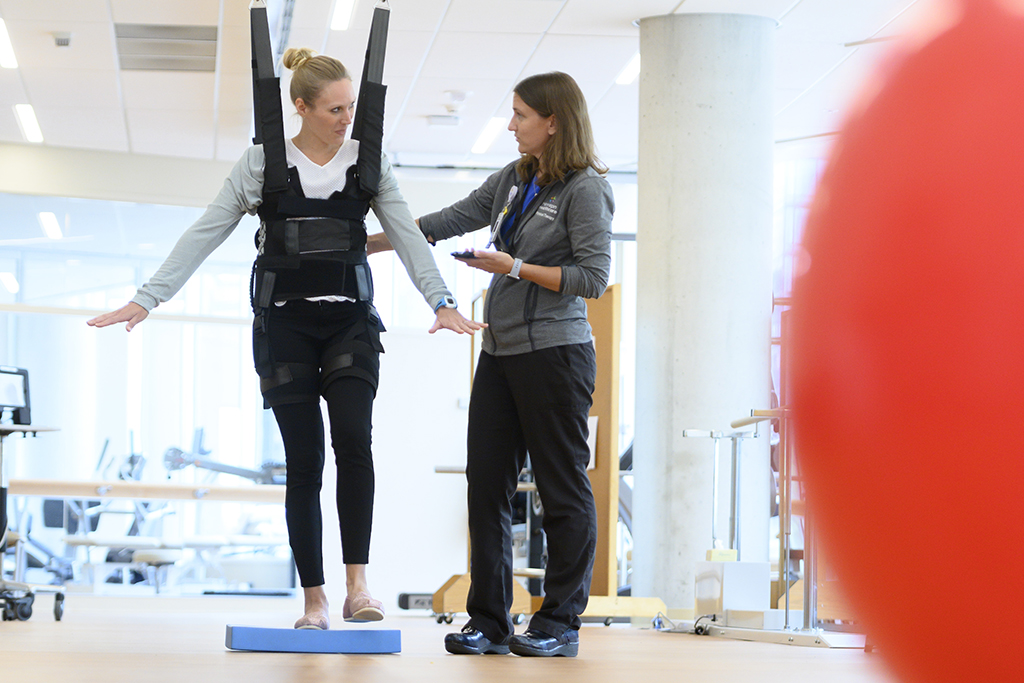
Neurological Physical Therapist
A neurological physical therapist is a physical therapist who specializes in the evaluation and treatment of individuals with a condition(s) that has made it difficult to complete their daily activities, work, or sport. Disease or injury can lead to problems with movement. Physical therapy can restore strength, balance, and mobility, the ability to move freely and easily.
At your first appointment, the physical therapist will take a detailed medical history and complete an examination. A typical examination includes an assessment of: posture, strength, coordination, balance, walking, flexibility, mobility and/or pain.
Following the initial evaluation, your physical therapist will suggest a treatment plan based on the test results. This may include additional visits as well as exercises to perform at home in order to achieve progress and to reach your goals that you have discussed with your physical therapist.

